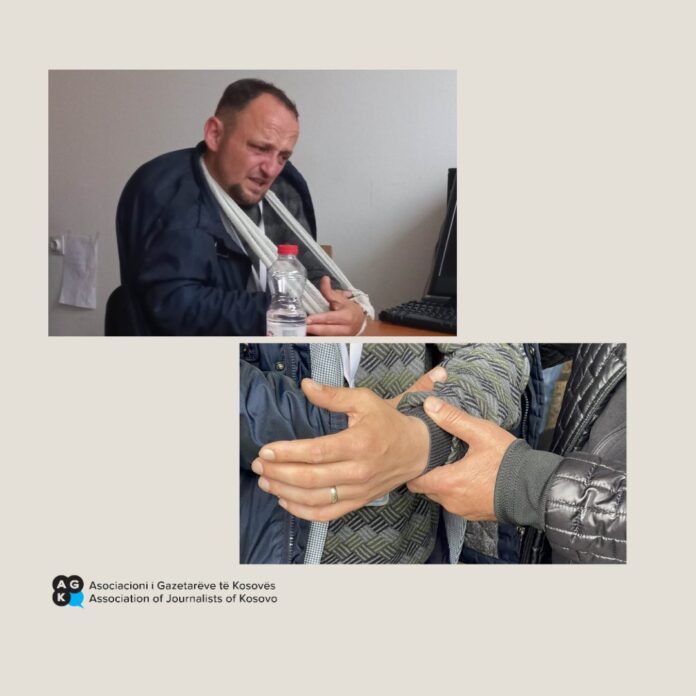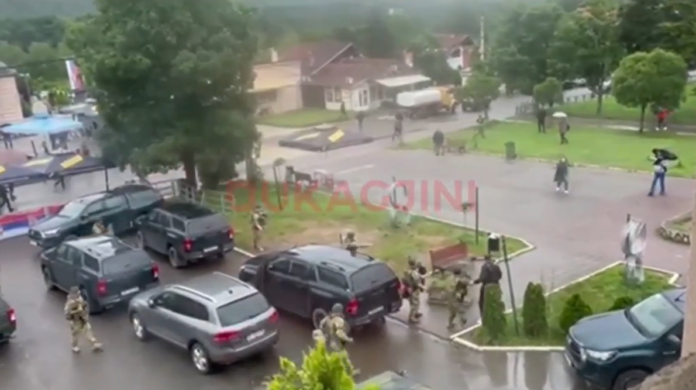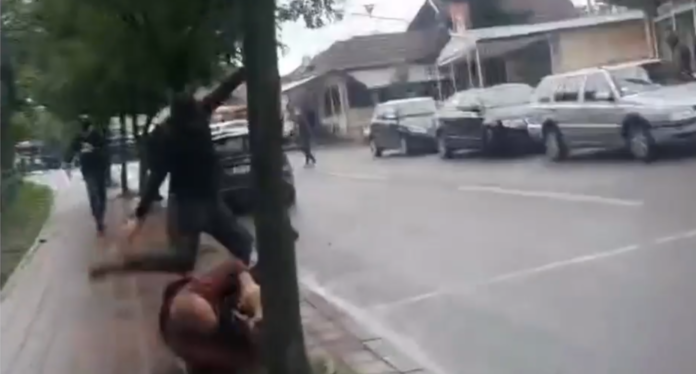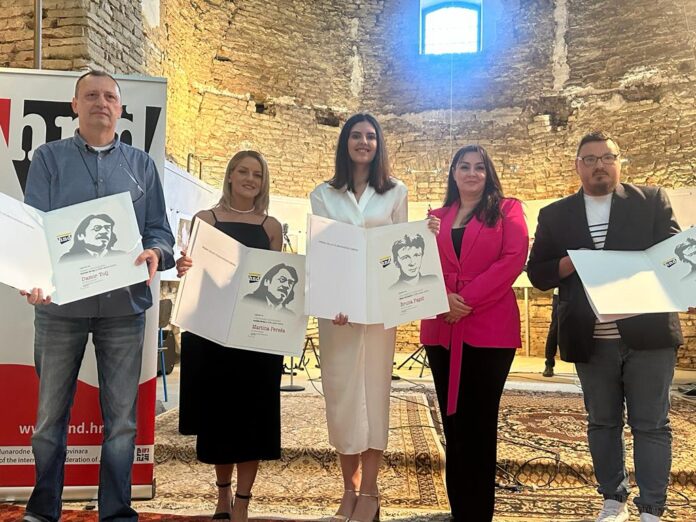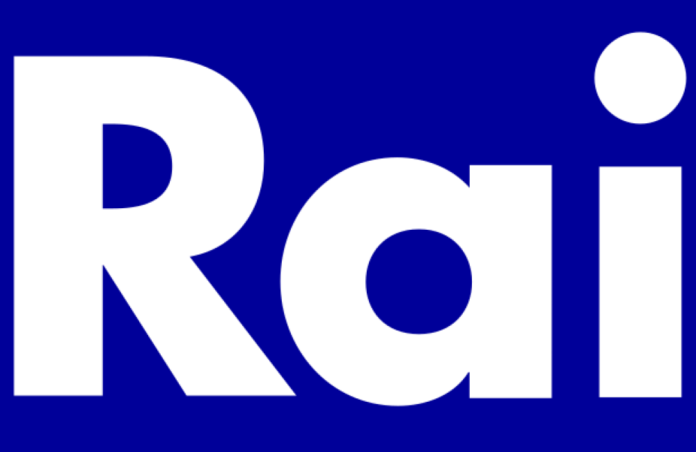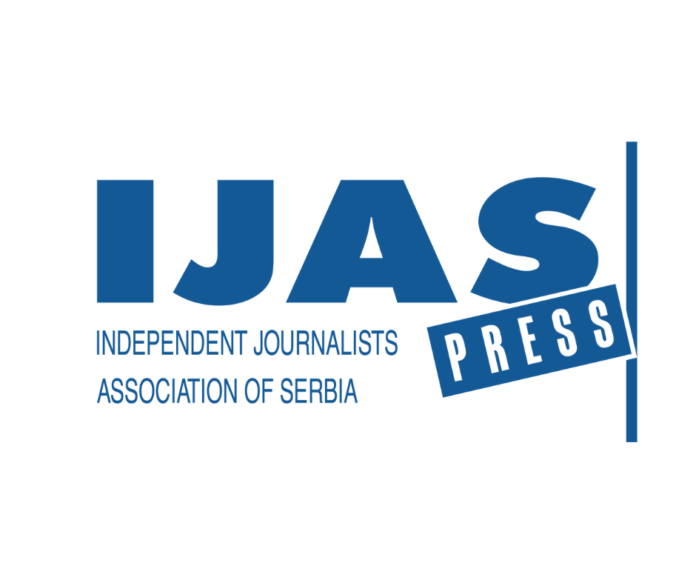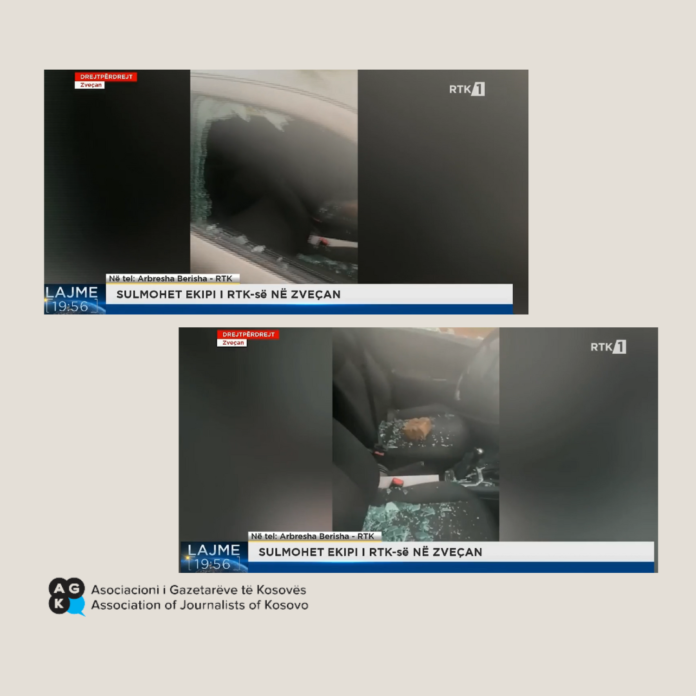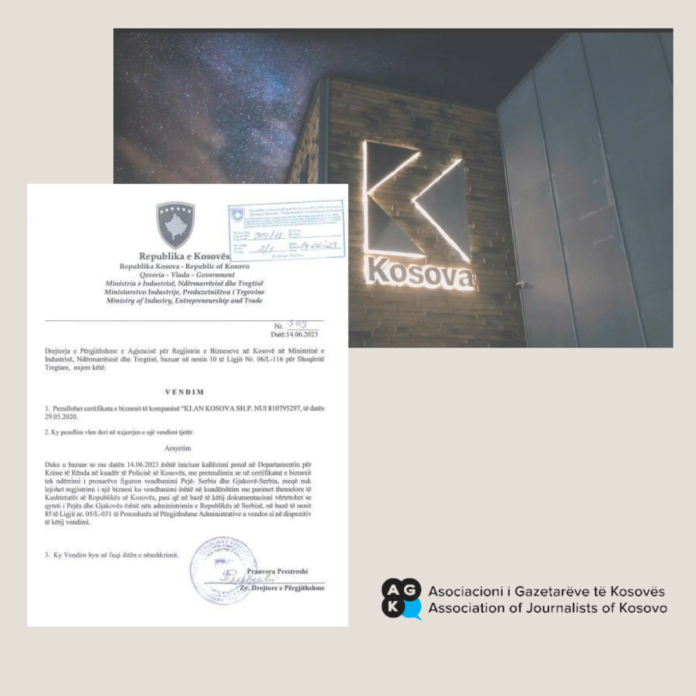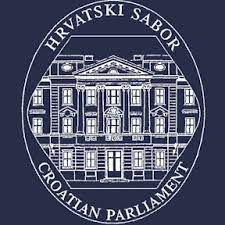The awards for local journalism – “Anđelko Erceg” in the categories of print and internet, and “Siniša Glavašević” in the categories of radio and television for the year 2022 were presented today in Vinkovci. The award in the print category was given to journalist Damir Tolj from Slobodna Dalmacija. In the internet category, the recipient was Martina Pereša from the portal Istra24, and Petrinjski radio received the “Glavašević” award for radio journalism. For television journalism, the award went to journalist Bruna Papić from Libertas TV.
The ceremonial award ceremony took place in Vinkovci as part of the Media In Time journalism festival, with 44 journalistic works submitted for consideration.
Damir Tolj noted that this is his second award in a week, following the one from Slobodna Dalmacija. He remarked, “While some are rewarding me, others are suing me because at the same time, for the same texts, I am receiving both awards and lawsuits,” optimistically adding, “forward ours.”
Bruna Papić dedicated her award to her recently deceased colleague and cameraman Ivica Šabić, who together made a significant contribution to the story that was awarded.
Accepting the award on behalf of Petrinjski radio, Mario Gršić expressed hope that they are the last radio station operating in a container and under impossible conditions. He also expressed hope that their premises would soon be renovated and that they could be good hosts.
CJA President Hrvoje Zovko expressed great satisfaction that in Vinkovci, at the second formal award ceremony of the Croatian Journalists’ Association for local journalism named after the great Croatian journalists Anđelko Erceg and Siniša Glavašević.
He further stated, “I am truly proud, as is the entire CJA, that this award was established last year. In this way, we wanted to pay tribute to Anđelko Erceg and Siniša Glavašević for everything they have done for the journalism profession. We wanted to show that their work, their life path will never be forgotten. With these awards, we also want to acknowledge all colleagues who cover important local stories, whether in national or local, regional media. We particularly want to acknowledge colleagues in small media outlets, in smaller communities, who often face difficulties and are exposed to various pressures, primarily political and economic. We want to encourage them and tell them that they are not alone and that what they do is important for the society we live in, for a society that must be better if we want this country to be a better place for every citizen to live in. Timely and accurate information on all important topics is one of the foundations of every democratic and successful society. Local journalism can rightfully be considered the foundation of journalism. Anđelko Erceg and Siniša Glavašević are the best examples of living and dying for journalism.”
He added, “Siniša Glavašević showed how a local journalist becomes global in just one day because his reporting from war-torn Vukovar was the only relevant information and connection to the world.”
Such actions can only be carried out by great professionals and even greater individuals, aware that they will pay for their truthfulness with their lives. Anđelko Erceg, as a respected journalist and editor in mainstream media in Zagreb, Split, and Rijeka, returned to Makarska and launched Makarska kronika, which for years exposed the dark dealings of local powerbrokers, earning the title “the greatest small newspaper in Croatia” among colleagues.
Maja Ljubić Kutnjak, Acting Head of the European Parliament in Croatia, greeted the awardees via video link, emphasizing the importance of local journalism and expressing support for journalists and the CJA in their fight for their rights.
On behalf of the organizers, Branimir Bradarić, President of the CJA branch of Vukovar-Srijem County, stated that the Media In Time festival, organized by the Media Culture Center, is becoming more substantive with each passing year, and they will strive to maintain this good trend in the future.
The musical ensemble Greasy Flat 4 enhanced and made the award ceremony even more enjoyable with their music at the Vinkovci photo gallery Meraja, where the entire award program for CJA’s awards for local journalism took place, hosted by Ivana Radaljac Krušlin.
The fourth edition of the Media In Time festival, organized by the Media Culture Center, began with a panel discussion on journalistic photographers, a profession threatened with extinction due to cost-cutting in media production. Newspaper photographers increasingly work for agencies within media houses, with fewer opportunities to tell stories or work in the field as reporters. Before the award ceremony, an exhibition of photographs titled “The Photographer Is a Journalist” by the CJA branch of Istria County was opened, featuring 18 photographs by Istrian photojournalists.
The festival program continues in Vukovar with a panel discussion on “Minority Media and Community Identity,” moderated by communication and media expert Tomislav Levak, a lecturer at the Academy of Arts and Culture of the University of Osijek.
Below are the justifications for the awarded prizes.
The Evaluation Committee, chaired by Željka Gavranović, with members Darko Baronica, Marija Molnar, Kristina Čirjak, Jasmin Klarić, Branko Mijić, and Hrvoje Zovko, reviewed 44 journalistic works. Below are the justifications for the awards:
“ANĐELKO ERCEG” AWARD IN THE PRINT CATEGORY
Damir Tolj, Slobodna Dalmacija
Damir Tolj, a journalist from Slobodna Dalmacija, exposed and brought closer to the whole of Croatia the complete sinking of the Split shipyard with his articles. In addition to delving into the past and reasons for such a business collapse, as a true local journalist, he brought out the most valuable aspect of such stories – the fates, as we usually say, of small people who are squeezed by big, but wrong, decisions. Without his articles, the public would have been deprived of information about the downfall of the former economic giant of Split, as well as about all the maneuvers of its owner Tomislav Debeljak, about which the colleague, although it was not possible to obtain official information because the company management declared him a persona non grata, wrote without hesitation, especially emphasizing the difficult position of the shipyard workers. He was and remains their voice when no one else wanted to hear them, and for that reason, in fierce competition, he deserved the award named after Anđelko Erceg.
“ANĐELKO ERCEG” AWARD IN THE INTERNET CATEGORY
Martina Pereša, Istra24
Martina Pereša, a journalist from the Istra24 portal, unquestionably and overwhelmingly demonstrated the value of local journalism with her article titled “SATURDAY ACCIDENT AS A WARNING Branislav Danevski: The system only exists on paper. What if I hadn’t been in Pula?” A story about a system that failed, through smart and dedicated analysis of events – the sinking of a sailboat and the rescue of two women from the sea – mercilessly dissected the shaky rescue system, highlighting all its flaws and proving how it was only one man away from complete collapse. In the sea of sensationalist articles and in a time when events from the police blotter are used almost exclusively for the immediate attention of a large number of readers and “clickbait,” Pereša used such an event that would have been forgotten in a day or two without her writing, to warn, improve, change, highlight, and point out. In other words, she showed what it means to be a journalist.
“SINIŠA GLAVAŠEVIĆ” AWARD IN THE RADIO CATEGORY
Petrinjski radio
In difficult and crisis situations, the media fully assume their fundamental role as news disseminators and mediators between worlds. In peacetime, this role is somewhat lost – especially today, in the era of “fast” news. Petrinjski radio, unfortunately, has been operating under abnormal conditions for years. Fortunately, this journalistic-hosting team copes quite well even in a container. The fact that they work tirelessly without interruption is enough evidence of how they live their job. Their shows, reports, and messages have long been an honest voice from the earthquake-ravaged and now somewhat forgotten part of Croatia. Without them, we would all be deprived of the complete truth, of a reality that is sometimes harsh and sometimes touching, of details that truly matter or at least make a significant difference, of people worth noticing and those we should push off the public stage as soon as possible. This award is a small sign of everything they did for their listeners and colleagues last year, helping to clear the communication channel, which, especially towards the capital, can easily lose messages and blur vision.
“SINIŠA GLAVAŠEVIĆ” AWARD IN THE TELEVISION CATEGORY
Bruna Papić, Libertas TV
Focusing on an apparently typical event for local journalists – the (un)fair allocation of funds by local government units to citizen associations – and delving deeper into the story, Libertas TV journalist Bruna Papić fully immersed herself in the role of a local journalist, wanting to bring about change for people from her community with her work. The positive response from the “competent authorities,” those who can help in such situations, is the most beautiful part of journalism and the fulfillment of its fundamental purpose – working for the common good. With her television report, Bruna Papić showed how an apparently simple, everyday topic, somewhat boring for many journalists, can become significant if approached by a true journalist. At such a moment, focusing on details, having a clear goal and vision, and presenting precisely those parts of the story that will provoke a reaction, is truly commendable skill.


